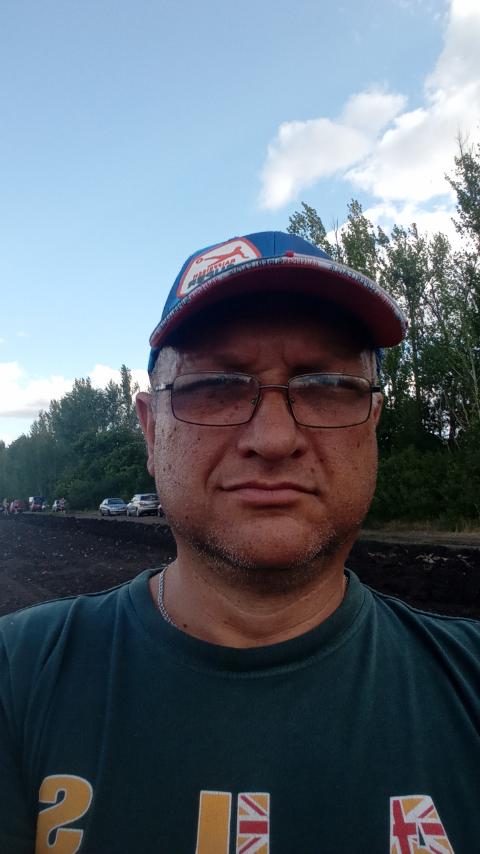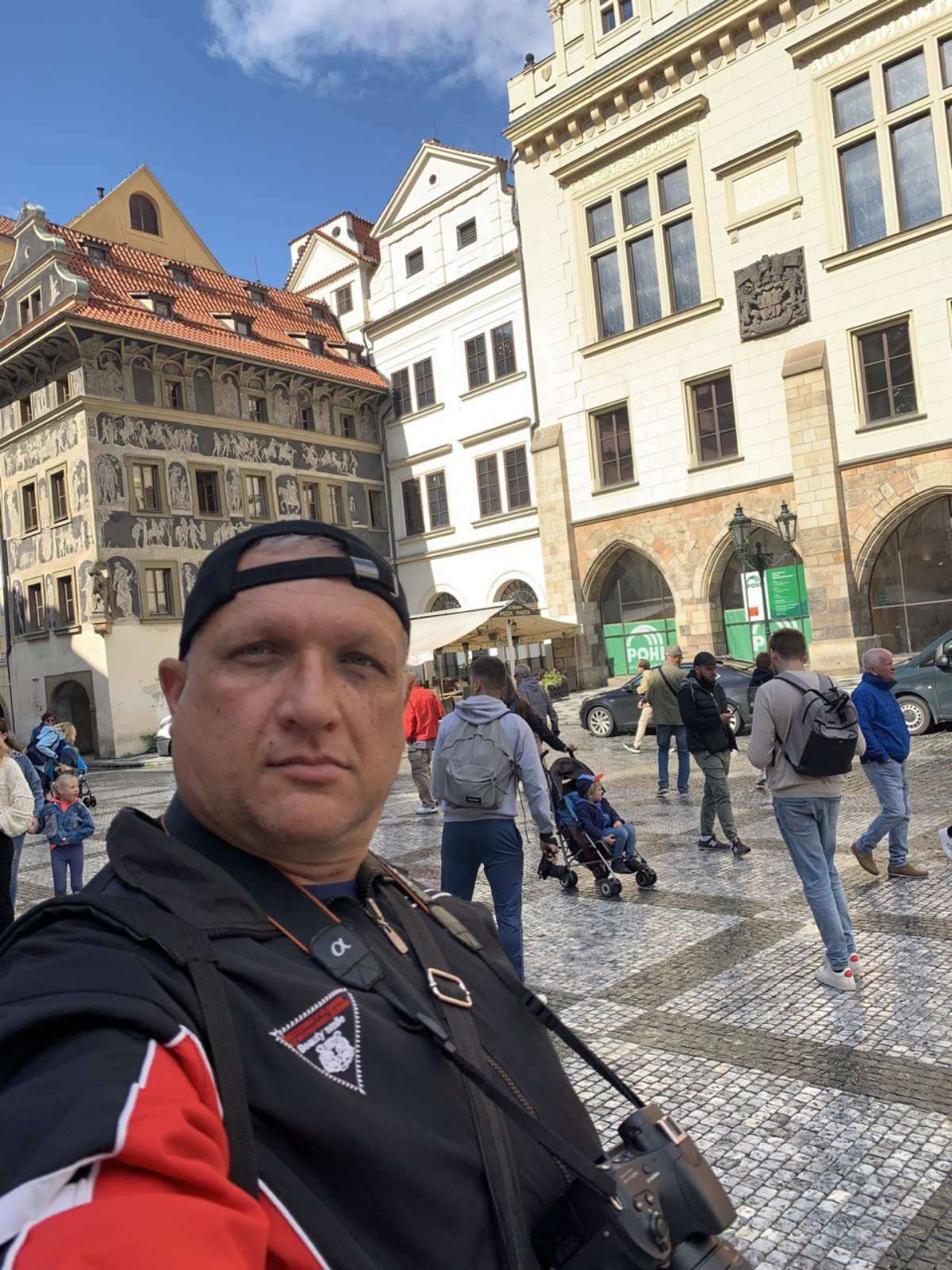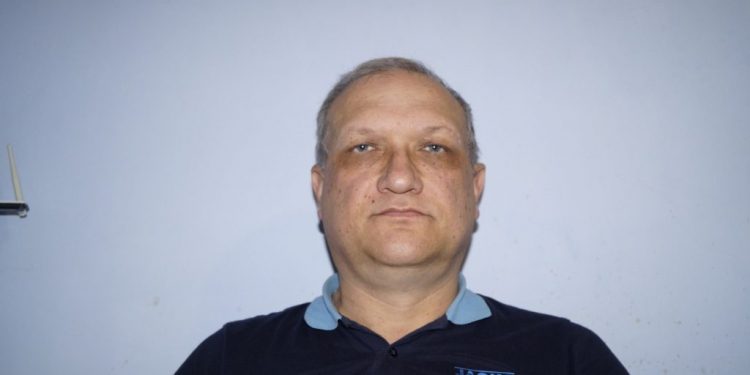As a result of the large-scale Russian aggression, Andrii Fomin, the chief editor of the “Dvorichanskyi Krai” newspaper, lost his home and job. During the occupation, the enemy spread propaganda, displayed Lenin busts, and burned Ukrainian books in Dvorichna. Learn how he, as a journalist, quickly protected his family and himself from persecution in his story.
“On that day, I still hoped to publish the next issue of the newspaper. I finished the layout, but I couldn’t send it for printing anymore.”
The settlement of Dvorichna is located just 20 kilometers from the Russian border. On February 24, occupants woke the locals with powerful explosions.
– We realized that war had started, – says Andriy. – Within a few hours, the military equipment of the invaders appeared in the settlement. Endless columns of the enemy marched on. All their equipment was covered, and their vehicles had tents. But on that day, I still hoped to publish the next issue of the newspaper. I finished the layout, but I couldn’t send it for printing anymore.
Dvorichna was occupied almost immediately. For a while, people still used Ukrainian products, but when those ran out, things became very difficult.
– While our community administration was still functioning, things were relatively organized, and the population wasn’t in such dire straits: there were still plenty of products in stores and medicines in pharmacies. But gradually, all of that disappeared. Supplies were meager. The Russians distributed humanitarian aid: a ‘handful’ of buckwheat and sugar. Local residents, especially pensioners, lined up every day near the administration. Their numbers grew day by day because people wanted to eat, and supplies were exhausted, – recalls Andrii Fomin, recounting the events at the beginning of the full-scale war.
In the occupied territory, the invaders primarily set out to “brainwash” Ukrainians. Fortunately, Andrii had access to satellite television, so his house occasionally turned into a makeshift cinema.
– Later, when the electricity went out, things became tougher. But I’m a radio engineer by profession: I converted a satellite tuner and TV to a 12-volt battery. That’s how I watched Ukrainian channels. Many acquaintances came over: we watched our news together, or I retold the news to them, – says our interlocutor.

The occupiers, along with local collaborators, many of whom unfortunately existed in the town, tried to impose their rules. Repressions began.
– They had lists of our ATO [Anti-Terrorist Operation] soldiers. They beat some and took others away in unknown directions. They mainly targeted activists, but regular people also got caught in this ‘meat grinder.’ There were a lot of informants. People in the town purposefully sat down, took a pen in hand, and wrote these reports – many reports. And then the occupiers would come after curfew and take people away, – the journalist recalls.
“They settled in the House of Culture, and there was a library there. They say they either took away or burned all Ukrainian literature.”
In Dvorichna, a strange scenario played out: occupiers tried to rewind time to the Soviet era. Despite the horrors, Andrii found it oddly amusing as the enemy placed Lenin busts at checkpoints and flooded the town with agitprop billboards.
– At the checkpoints, Lenin appeared. The bust stood on a velvet-covered pedestal. It was both funny and terrifying. They settled in the House of Culture, and there was a library there. They say they either took away or burned all Ukrainian literature. There was also a billboard that read, ‘We’re with Russia! One people!’ The style and punctuation were so off… It was funny, but apparently not for everyone, – Andrii recounts.
During the occupation, people were constantly pressed to collaborate. Andrii managed to remain unnoticed for a while, but one day, leaving a store, he was approached by a collaborator who “suggested” he come for a talk at the administration. Choices were always there but refusing could have cost Andrii his life.
– I didn’t want to go, but if I didn’t, they would have come to me. So, I went. They ‘offered cooperation.’ I started asking: what grounds, what laws are we living under? Their response: ‘Why do you start right away?’ ‘By what laws will we live?’ ‘There’s no Ukraine here. Here – it’s Russia.’ ‘Clearly, by Russian laws, you have to register…’ ‘Are you smart or something?’ That’s where the conversation ended, – continues the editor.
Andrii attempted to save the belongings and archives of the editorial office, managing to hide some briefly. Collaborators, however, made continuous attempts to coerce him into collaboration, eventually taking the keys to the editorial office and forcing him to surrender equipment.
– I gave them the keys. They put me in a car, and we went to a colleague for another set of keys. I thought I wouldn’t be returning home, but they dropped me off. I ran, as there was a curfew, and that’s when I finally understood that I needed to leave, – recalls Andrii.
“ And as soon as we got in the bus and drove away, I felt like I’d been freed from something bad and dirty.”
Leaving the occupied territory was only possible through Russia. At checkpoints and border crossings, the occupiers put people through hell. They held them in the cold for hours, interrogated them exhaustively, and meticulously checked their belongings. After such humiliation, encountering Latvian border guards brought a stark contrast.
– At the ‘Ubilinka’ checkpoint, they didn’t let us through for a day. It froze at night. We slept on wooden pallets. There was no shelter (or even a canopy). We warmed up in stores, but not all stores allowed it. In some, you could have coffee and even use the restroom. Over a hundred people spent the night under the open sky. It was very cold. I had only one bag with me, and I put on everything I could. People were in robes, jackets, blankets… On the second day, they began letting groups of ten people through. They meticulously checked bags and undressed us. Finally, they took our passports and said, ‘Go there.’ We went toward the Latvian border. There, at the Latvian border, we also filled out declarations, and they said, ‘Go.’ The guys with me immediately asked when they’d check our bags again, and they were told once more, ‘Go.’ So, we went. An awaiting bus met us, and as soon as we got in and drove away, I felt like I’d been freed from something bad and dirty, – concludes our interlocutor.

After that, Andrii and his family journeyed through Latvia, Lithuania, Poland, and the Czech Republic to reach Ukraine. They now live in Uzhhorod and don’t intend to return to their hometown. Despite being under Ukrainian control, the front line is close by.
– At the moment, there are active combat operations in our region. It’s dangerous to return there now. Our apartment was completely destroyed, and our neighbor died in the building explosion. I receive support from friends, acquaintances, and colleagues. Currently, I’m in the status of an internally displaced person (IDP) and, unfortunately, not employed anywhere. I hope very much that we will return to our home in Dvorichna. I’m confident that Ukraine will prevail, and then the radio station will work again, and the newspaper will be published. It will all be Ukraine! – summed up Andrii Fomin.
This series, titled Executed Free Speech, is created as part of a project Drawing Ukrainian And International Audience’s Attention To Serious Violations Of Human Rights And Crimes Against Journalists And Mass Media By The Russian Federation, which is performed by the National Union of Journalists of Ukraine, with support from the Swedish non-profit organization Civil Rights Defenders.
JOURNALISTS ARE IMPORTANT. Stories of Life and Work in Conditions of War is a cycle of materials prepared by the team of the NUJU with the support of the Swedish human rights organization Civil Rights Defenders.
#CRD

 THE NATIONAL UNION OF
JOURNALISTS OF UKRAINE
THE NATIONAL UNION OF
JOURNALISTS OF UKRAINE
















Discussion about this post